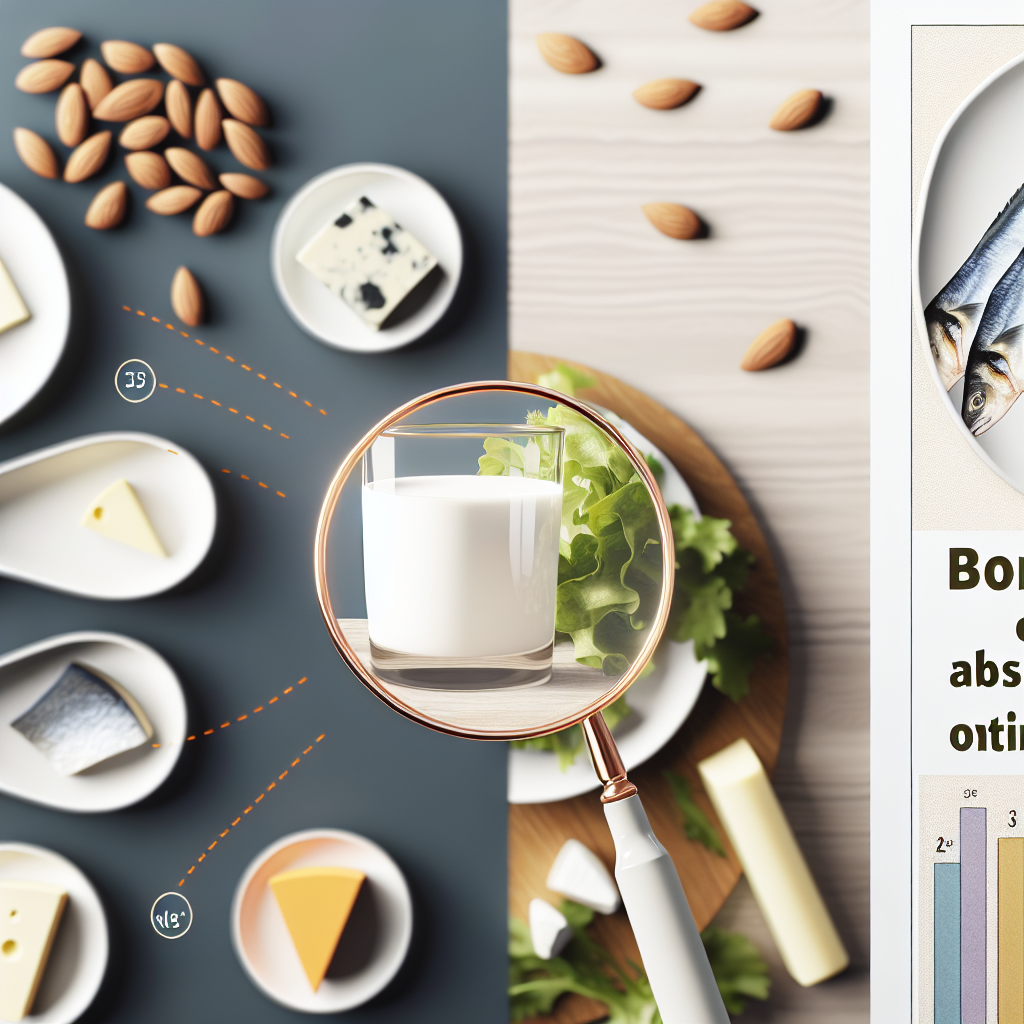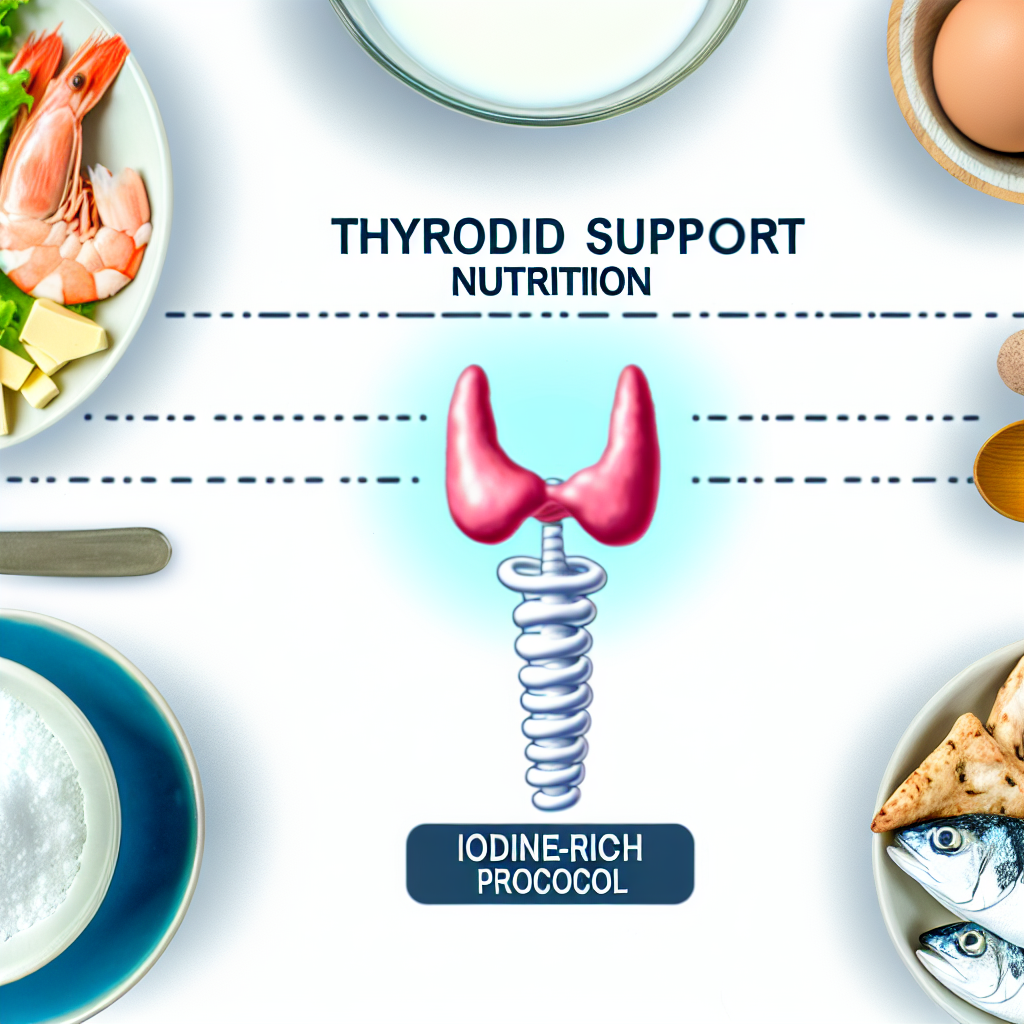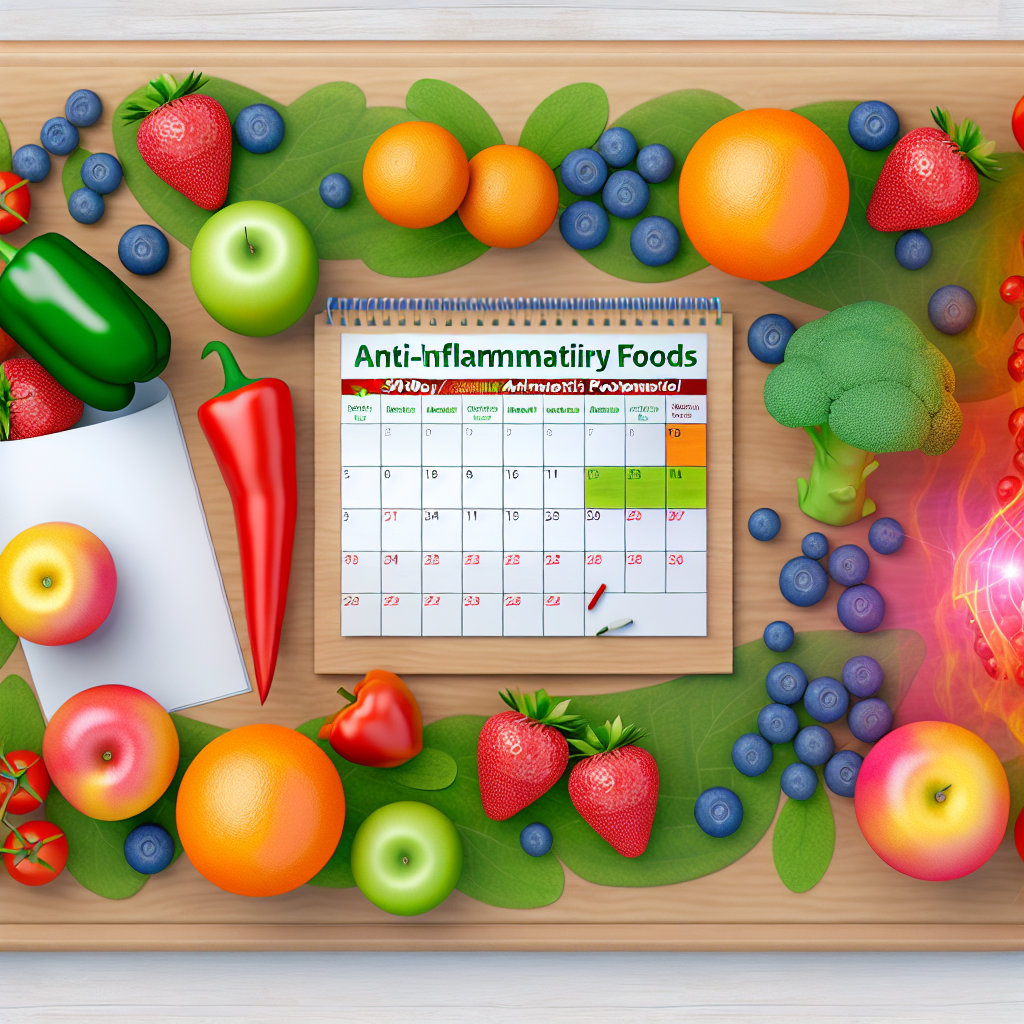Bone Density Diet – Calcium Absorption Optimization
Introduction
Strong bones are essential for overall health and mobility, especially as we age. Bone density naturally diminishes over time, increasing the risk of fractures and conditions such as osteoporosis. As more people pursue proactive wellness and disease prevention, interest has turned toward natural dietary strategies that promote skeletal strength. A key aspect of preventing bone loss is ensuring adequate intake of calcium, the building block of bones. However, consuming calcium alone is not enough—your body must also be able to absorb and utilize it effectively.
Calcium absorption is a sophisticated process influenced by various factors including age, gender, hormone levels, digestive health, and the presence of supporting or inhibiting nutrients. Nutrients like Vitamin D, magnesium, and Vitamin K2 play a pivotal role in enhancing calcium bioavailability and ensuring that it is deposited in bones rather than soft tissues like arteries. Conversely, processed foods, excessive alcohol, caffeine, and high sodium intake can decrease calcium absorption or its effectiveness.
With the rise of plant-based or dairy-free diets, understanding calcium-rich, non-dairy food choices that promote bone health has become increasingly important. Foods such as leafy greens, seeds, almonds, beans, and fortified plant-based milks contain calcium. Yet their effectiveness depends on overall dietary synergy—how these foods interact with co-factors that enhance or inhibit calcium uptake. A target-focused bone density diet emphasizes these interactions, supporting a metabolic environment favorable for bone maintenance and renewal.
Additionally, herbal remedies and natural treatments such as horsetail, nettle, and red clover have gained attention for their mineral content and potential effects on bone regeneration. These herbs, rich in compounds like silica and boron, have traditionally been valued in herbal medicine for musculoskeletal support. The combination of modern nutritional insights with traditional, plant-based practices offers an integrative approach to strengthening bone health naturally and sustainably.
This article examines how a calcium-focused diet, the role of vitamin and mineral cofactors, and natural alternatives work together to promote long-term skeletal strength.
Scientific Studies and Features
The importance of calcium in achieving peak bone mass is supported by a study published in the Journal of Clinical Endocrinology & Metabolism. It found that calcium intake during childhood and adolescence is essential for attaining optimal peak bone mass, which can significantly protect against fractures and osteoporosis in later life. [Source](https://academic.oup.com/jcem/article/87/6/2601/2847076)
Vitamin D is essential to calcium metabolism. According to research published in the Archives of Internal Medicine, Vitamin D deficiency significantly lowers the body’s ability to absorb calcium. This can lead to secondary hyperparathyroidism, increasing bone resorption and potentially resulting in osteopenia or osteoporosis. This study emphasizes maintaining adequate Vitamin D levels through sunlight exposure, diet, or supplementation. [Source](https://jamanetwork.com/journals/jamainternalmedicine/fullarticle/486349)
More than just calcium, the synergy between calcium and other nutrients like Vitamin K2 is important. A randomized controlled trial in the American Journal of Clinical Nutrition found that calcium combined with K2 through diet, not just supplements, significantly improved bone mineral density (BMD) in postmenopausal women. K2 activates osteocalcin, a bone-regulating protein that helps integrate calcium into the skeletal matrix. [Source](https://academic.oup.com/ajcn/article/89/6/1799S/4596792)
Magnesium also contributes to sturdy bones. In a study by the Journal of the American Geriatrics Society, older adults with a higher dietary intake of magnesium had increased BMD and a lower risk of fractures. Magnesium works in concert with calcium in bone formation and stability. [Source](https://agsjournals.onlinelibrary.wiley.com/doi/full/10.1111/jgs.14767)
In the realm of natural therapies, certain herbs have been scrutinized scientifically. Horsetail (Equisetum arvense), known for its silica content, supports collagen production and bone restoration. A clinical trial published in BMC Complementary Medicine and Therapies reported that participants taking horsetail extract showed increased levels of bone formation biomarkers. [Source](https://bmccomplementmedtherapies.biomedcentral.com/articles/10.1186/s12906-020-02857-y)
Nettle (Urtica dioica) is another botanical used widely in traditional medicine. It contains calcium, magnesium, and boron—elements necessary for bone mineralization. Although larger studies are still needed, early findings and historical use indicate that nettle can support the body’s bone remodeling process by enhancing nutrient delivery and hormonal balance.
This growing body of research affirms the value of integrating dietary nourishment with plant-based, supportive treatments to promote natural calcium absorption and maintain strong, resilient bones.
Conclusion
Supporting bone health and optimizing calcium absorption goes beyond meeting daily calcium intake requirements. It calls for a comprehensive, nutrient-dense diet that addresses the interdependent roles of micronutrients like Vitamin D, K2, and magnesium. A successful bone density diet includes more than dairy; it encompasses leafy greens, nuts, seeds, fermented foods, legumes, and fortified plant milks in a balanced synergy.
Natural herbs such as horsetail, nettle, and red clover offer promising long-term benefits, combining ancient knowledge with contemporary science. Regular sun exposure for Vitamin D activation, minimizing processed foods, and supporting digestive health are also pivotal.
Whether you’re looking to prevent early bone density loss or manage conditions such as osteopenia or osteoporosis, an integrative approach using both nutrition and natural therapies can provide effective and sustainable outcomes.
Concise Summary
A bone density diet focuses on enhancing the body’s ability to absorb and utilize calcium effectively to strengthen bones and prevent osteoporosis. Adequate intake of Vitamin D, K2, and magnesium, alongside calcium-rich whole foods, ensures optimal bone health. Supported by scientific research, traditional herbs like horsetail and nettle boost bone regeneration. This holistic, integrative approach combines nutrition, lifestyle, and natural medicines to improve bone mineral density and long-term skeletal resilience.
References
– [Calcium intake during puberty and adulthood: role in peak bone mass](https://academic.oup.com/jcem/article/87/6/2601/2847076) – Journal of Clinical Endocrinology & Metabolism
– [Vitamin D deficiency and bone health in adults](https://jamanetwork.com/journals/jamainternalmedicine/fullarticle/486349) – Archives of Internal Medicine
– [Combination of Vitamin K2 and dietary calcium improves BMD](https://academic.oup.com/ajcn/article/89/6/1799S/4596792) – American Journal of Clinical Nutrition
– [Magnesium intake and bone health in older adults](https://agsjournals.onlinelibrary.wiley.com/doi/full/10.1111/jgs.14767) – Journal of the American Geriatrics Society
– [Horsetail extract on markers of bone formation](https://bmccomplementmedtherapies.biomedcentral.com/articles/10.1186/s12906-020-02857-y) – BMC Complementary Medicine and Therapies

Dominic E. is a passionate filmmaker navigating the exciting intersection of art and science. By day, he delves into the complexities of the human body as a full-time medical writer, meticulously translating intricate medical concepts into accessible and engaging narratives. By night, he explores the boundless realm of cinematic storytelling, crafting narratives that evoke emotion and challenge perspectives.
Film Student and Full-time Medical Writer for ContentVendor.com




